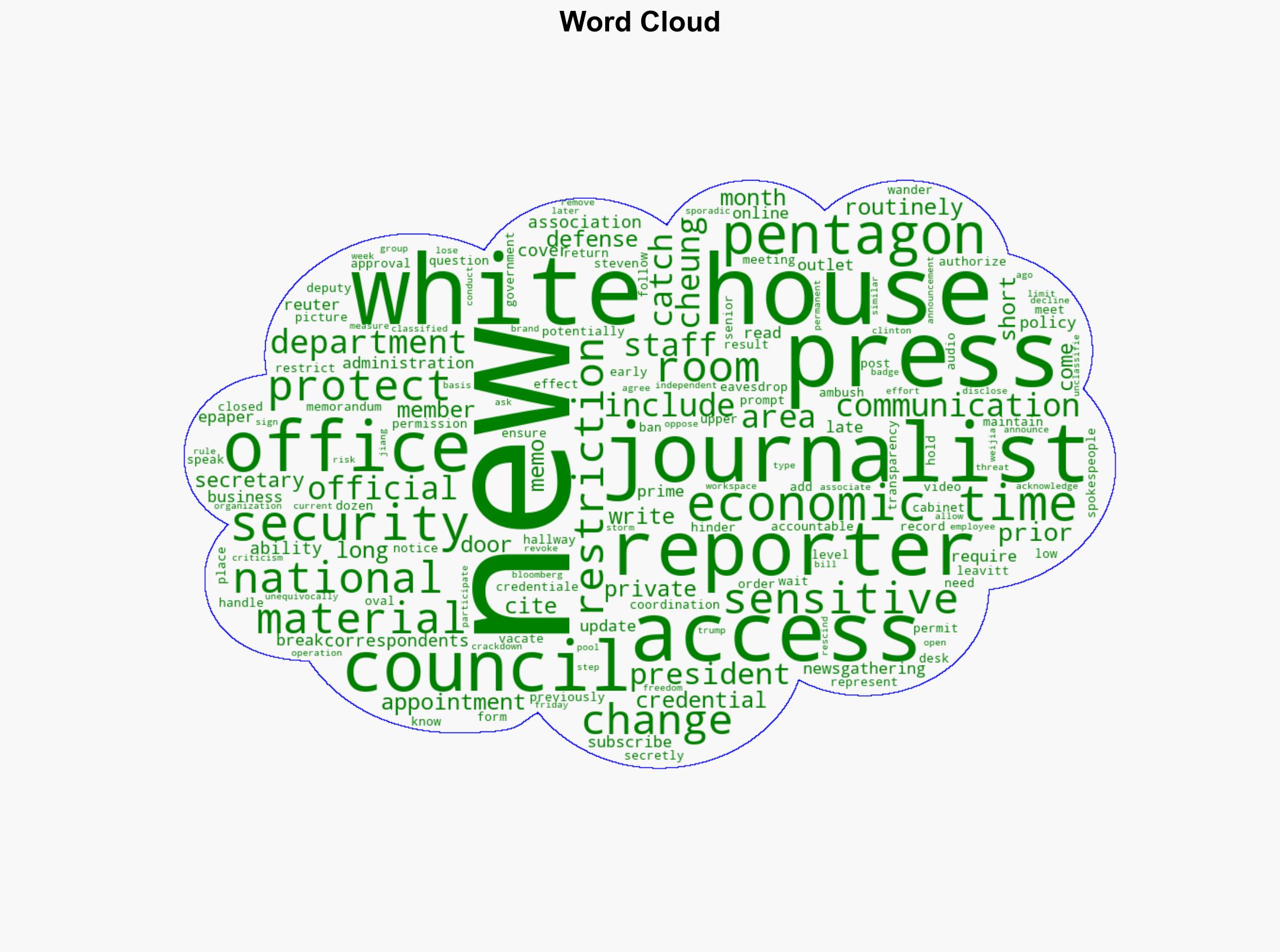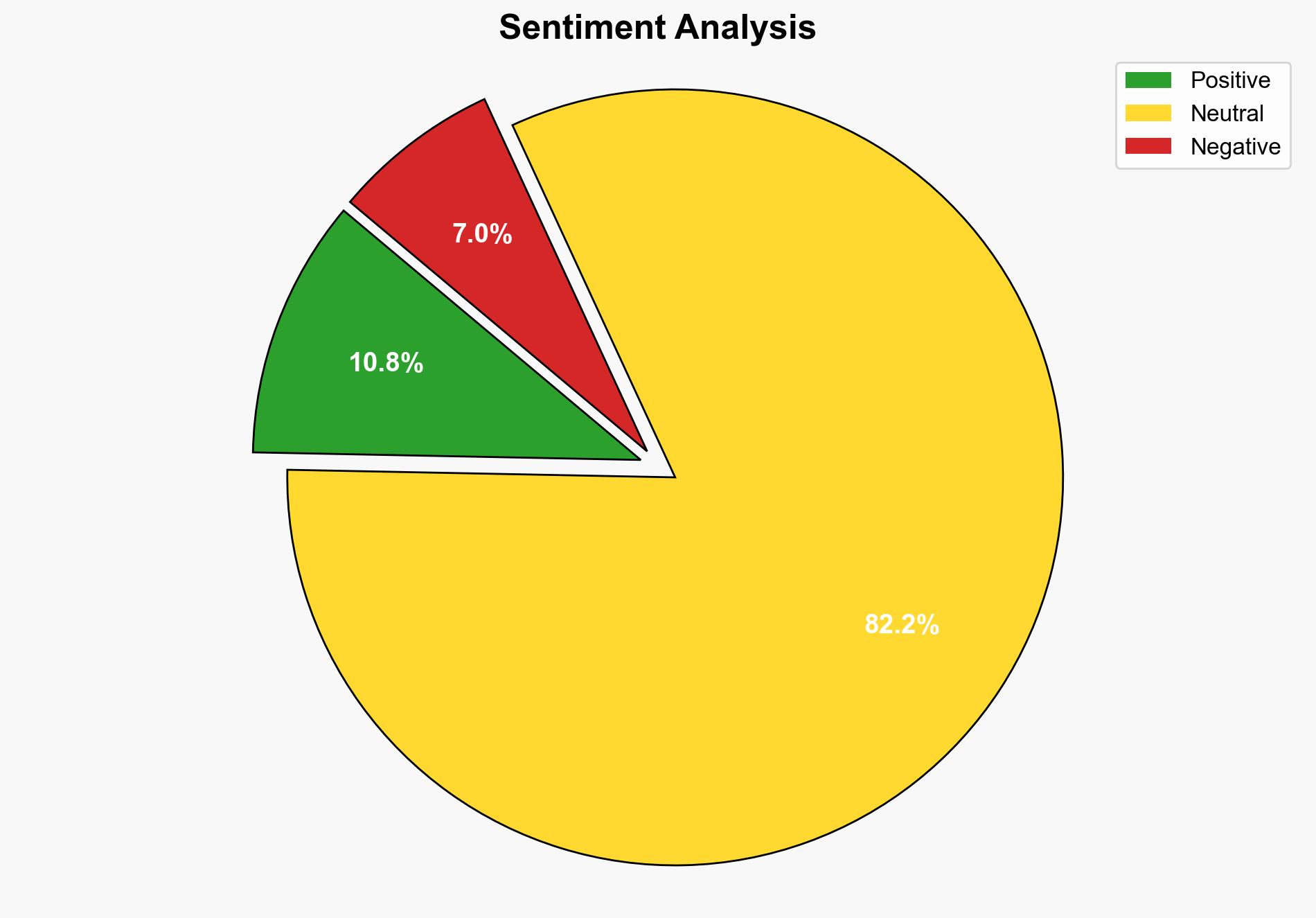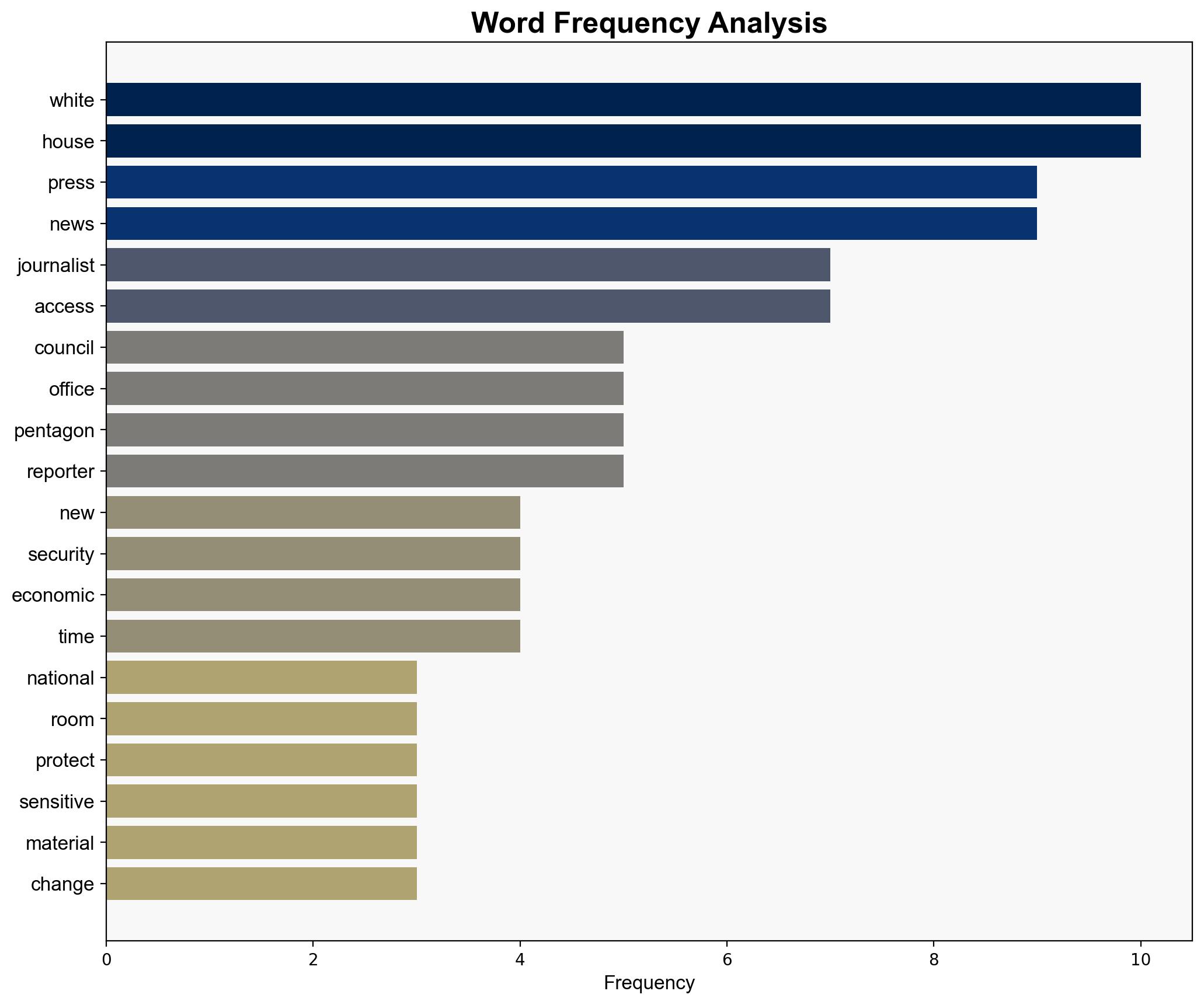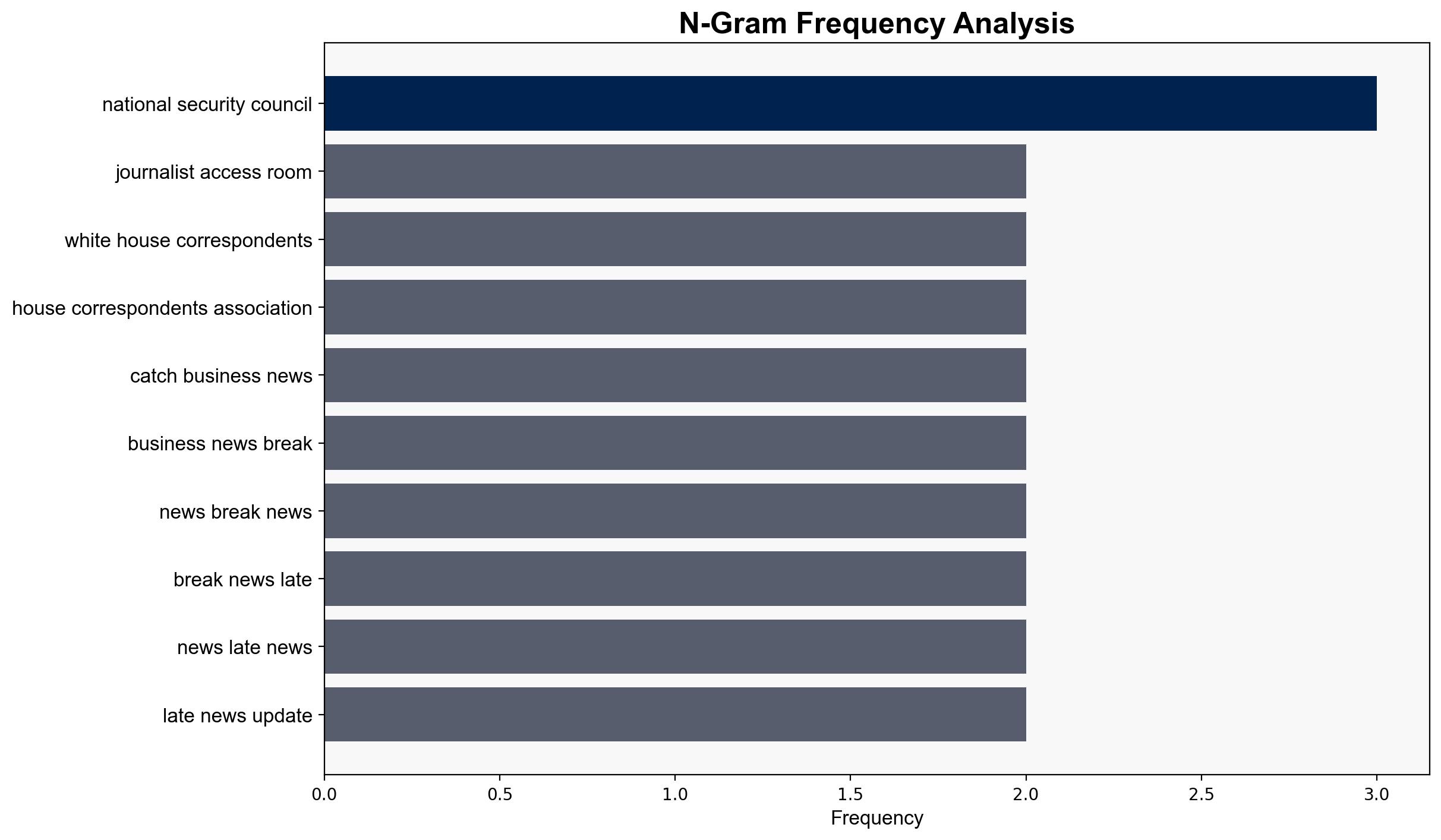White House restricts access for journalists to press secretary’s office – The Times of India
Published on: 2025-11-01
Intelligence Report: White House restricts access for journalists to press secretary’s office – The Times of India
1. BLUF (Bottom Line Up Front)
The recent restrictions on journalist access to the White House press secretary’s office are likely aimed at enhancing operational security and controlling sensitive information. However, these measures may also reflect an attempt to limit media scrutiny and control the narrative. The hypothesis that the restrictions are primarily for security reasons is better supported by the available evidence. Confidence Level: Moderate. Recommended action: Monitor further developments and assess impacts on media-government relations.
2. Competing Hypotheses
1. **Security-Driven Hypothesis**: The restrictions are primarily implemented to protect sensitive information and prevent unauthorized access or leaks, as indicated by the memorandum citing the need to protect potentially sensitive material.
2. **Control-Driven Hypothesis**: The restrictions are a strategic move to limit media scrutiny and control the narrative, as suggested by the White House Correspondents’ Association’s opposition and the historical context of similar actions being criticized.
3. Key Assumptions and Red Flags
– **Assumptions**: The Security-Driven Hypothesis assumes that the primary intent is to safeguard sensitive information without ulterior motives. The Control-Driven Hypothesis assumes a deliberate strategy to limit media influence.
– **Red Flags**: The lack of specific incidents cited as justification for the restrictions raises questions. The timing, following similar actions by the Department of Defense, suggests potential coordination or a broader strategy.
– **Blind Spots**: The internal decision-making process and any classified information influencing the decision are not disclosed.
4. Implications and Strategic Risks
– **Media Relations**: The restrictions could strain relations between the government and the press, potentially leading to decreased transparency and increased public skepticism.
– **Operational Security**: If genuinely security-driven, the measures could enhance the protection of sensitive information, but may also create an environment of distrust.
– **Geopolitical Impact**: Perceived suppression of the press could affect international perceptions of U.S. commitment to democratic principles.
5. Recommendations and Outlook
- Monitor for further policy changes or similar restrictions in other government departments to identify broader trends.
- Engage with media organizations to understand their perspectives and potential impacts on newsgathering.
- Scenario Projections:
- Best Case: Restrictions lead to enhanced security without significant media backlash.
- Worst Case: Escalating tensions between the government and media lead to reduced transparency and public trust.
- Most Likely: Continued tension with periodic adjustments to access policies based on media and public response.
6. Key Individuals and Entities
– Steven Cheung
– Weijia Jiang
7. Thematic Tags
national security threats, media relations, government transparency, information control




